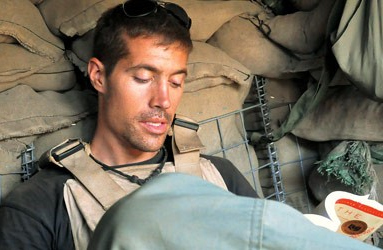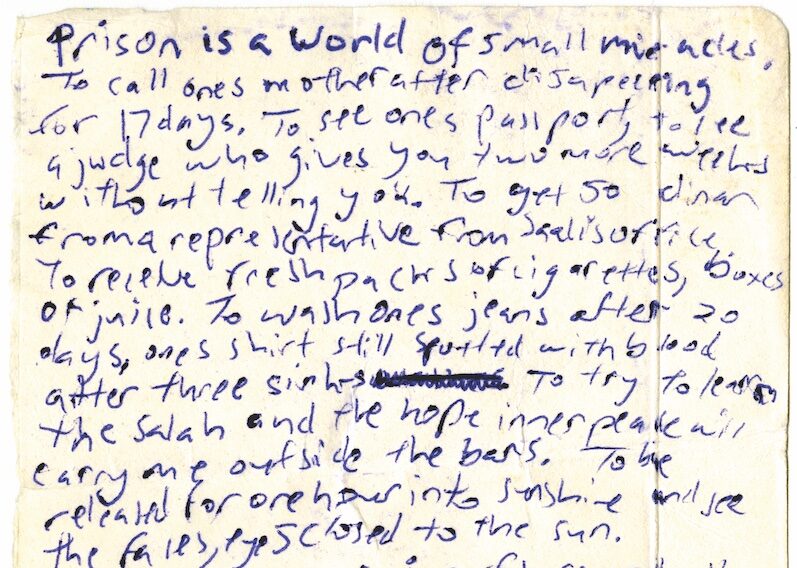Some days, Dr. Tom Durkin admits, it’s difficult for him to talk about his best friend James Foley, Arts ’96, the freelance conflict journalist murdered by ISIS militants in Syria in 2014.
“It’s hard,” says Durkin, research and grant coordinator at Marquette’s Center for Peacemaking and education program director of the James W. Foley Legacy Foundation. “It’s therapeutic in some ways. It does keep him alive.”
After saving years of correspondence with Foley and receiving suitcases full of papers, journals and photographs from Foley’s parents, Diane and John, Durkin knew his Milwaukee home wasn’t the proper place to store such materials.
Durkin, Arts ’96, Grad ’07, has been doing a lot of interviews since the recent announcement that the Department of Special Collections and University Archives at Raynor Memorial Libraries will be archiving Foley’s records, a portion of them in time for the 10th anniversary of his death.

Durkin had saved years of correspondence with Foley and had suitcases full of papers, journals and photographs from Foley’s parents, Diane and John, in New Hampshire. But Durkin knew his Milwaukee home wasn’t the proper place to store such materials. When he approached Marquette, the response was favorable from the start, with archivists commending the reach of a collection encompassing 14 physical boxes and 10 terabytes of digital material. “The size of the digital collection makes it unique,” says Katie Blank, university/digital records archivist.
Marquette-Foley bonds run deep. There were the prayer vigils during his two imprisonments, a thank-you letter he wrote to the school after his release the first time, and subsequent speeches and appearances on campus. Now there is a James W. Foley Scholarship for a student in the Diederich College of Communication, and the college has piloted a journalist safety curriculum and teaching module to prepare reporters for an increasingly hostile environment, domestically and internationally. The archives will help extend the relationship far into the future.
“Jim would be happy that his life may be helping other people,” Durkin says. “But he’d be the typical journalist in that he wouldn’t want the story to be about him.”
If you are interested in supporting the Foley archives project, please contact jaclyn.ness@marquette.edu.




